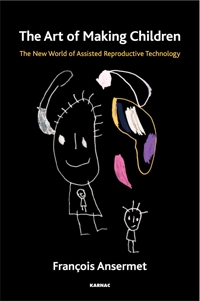The Art of Making Children: The New World of Assisted Reproductive Technology

Book Details
- Publisher : Routledge
- Published : 2017
- Cover : Paperback
- Pages : 208
- Category :
Psychoanalysis - Category 2 :
Bargain and Discounted Titles - Catalogue No : 38855
- ISBN 13 : 9781782204749
- ISBN 10 : 1782204741
Reviews and Endorsements
‘In this book the sense of vertigo felt in the face of the transmission of life is not only philosophical but is also inscribed in the concrete aspects of clinical practice. Anguish is the mark of this. The novelties offered by technological and medical progress to those aspiring to procreation are considered seriously. The author never overlooks what psychoanalysis brings to an understanding of these phenomena and the prospects they open up. His enthusiasm is all the more communicative for this reason. François Ansermet introduces us into the workshop of creation, and we are then reluctant to leave it again.’
—Jean-Daniel Matet, President of the Euro-Federation of Psychoanalysis
‘Not so long ago, making babies involved just two people of opposite sex. Technological advances of the past twenty-five years or so have significantly altered the landscape. In vitro fertilisation, surrogate mothers, use of other eggs and sperm, same-sex parents and uterus transplants have heralded a whole range of new possibilities. There is, however, a dimension not sufficiently recognised or discussed: the emotional impact of these advancements on the individuals involved, including mothers, fathers, surrogate mothers, donors and children. This is the dimension François Ansermet tackles with erudition and great clarity. Combining literary allusions, philosophical analysis and psychoanalytic insights, and using examples from a variety of sources including his own practice, he elucidates in detail the illusion of certainty and predictability as well as the inherent challenges in a variety of real or possible scenarios. The final chapter of the book, however, ends with a powerful optimistic note and one that can as easily apply to many of our other existential anxieties. This is a very timely study that looks at highly relevant issues both for the present as well as the future.’
— Edward Nersessian, MD, training and supervising psychoanalyst, New York Psychoanalytic Institute

